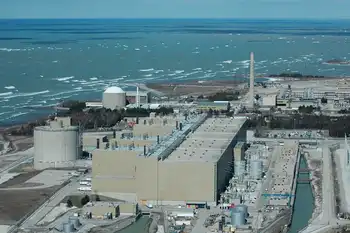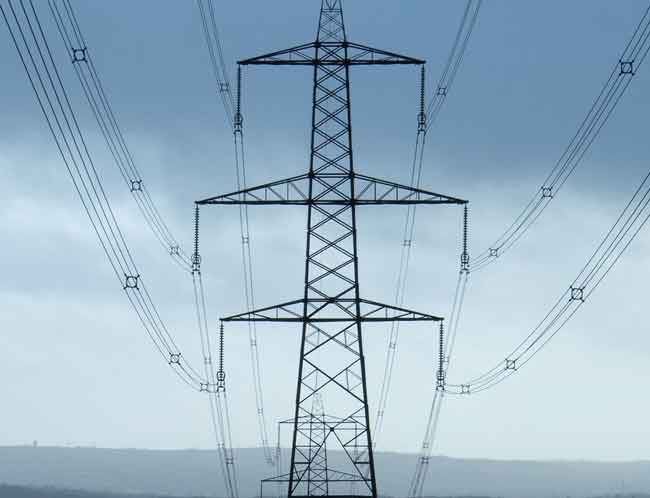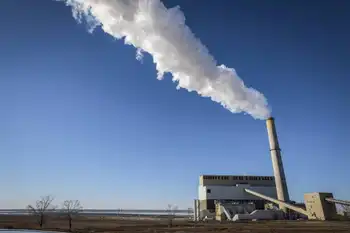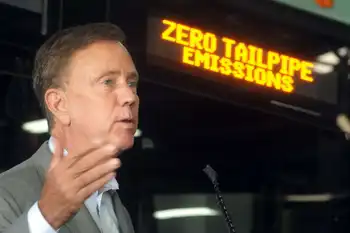Jordan seeks to become energy exporter
"We are moving in great strides in the field of civilian nuclear energy in order to stop being dependent on the import of fuel," said Tukan, who chairs the Jordan Atomic Energy Commission.
Jordan is the latest Sunni Arab country, among them Egypt and pro-Western Gulf states, to announce plans for nuclear power programs in the face of Shiite Iran's controversial atomic drive.
"Our goal is transform Jordan from net energy importing to net electricity exporting country by 2030," added Tukan, whose country imports 95% of its energy needs.
Jordan's 2007 energy bill was $3.2 billion, the equivalent of 24% of its total imports and 20% of gross domestic product.
The kingdom has six power stations with a total generation capacity of 2,400 megawatts, but it has been forced to buy 5% of its electricity needs from neighboring Arab countries in the face of growing demand.
In the country of nearly six million people, per capita electricity consumption is estimated at 2,000 kilowatts a year.
"In 2030, electricity consumption will double," added Tukan, noting that " atomic energy is the most logical solution" to meet his country's growing power needs.
"Four regions in Jordan have been demarcated for exploration of uranium," which is found in carbonate rocks and in phosphate.
Jordan's 1.2 billion tons of phosphate reserves are estimated to contain 130,000 tons of uranium, whose enriched form provides fuel for nuclear plants.
But Jordan has given priority to uranium mining, which is faster and less expensive, Tukan said.
"The country has reached nuclear cooperation deals with six countries, France, China, South Korea, Canada, Russia and Britain, and hopes to sign three more agreements with Romania, Spain and Argentina," he added.
In October 2008, French nuclear giant Areva started exploring for uranium resources in the central region of Jordan, which has 70,000 tons of carbonate rocks.
"The work in this area is the most advanced and in the final stages of exploration," said Tukan.
In February, Anglo-Australian mining giant Rio Tinto Plc signed a deal with Jordan to explore for uranium, thorium and zirconium in Wadi Sahab Abiad, close to the border with Saudi Arabia.
China's National Nuclear Corporation, meanwhile, is searching for uranium in the northern area of Hamra-Hausha and Wadi Baheyya in the south.
"We are currently trying to delineate the site of a nuclear reactor," said Tukan, adding that a potential site was in southern Jordan along the Red Sea, which is also bordered by Israel and Egypt.
Jordanian and Israeli experts met in June to discuss environmental issues related to the plan, Tukan said, adding that he would hold talks on the project with Egyptian officials in August.
"At the moment things are going smoothly," he said.
"The Belgian company Tractebel Suez-GDF is responsible for studies of the site, which is currently under scrutiny and an analysis of the safety and environmental impact."
Tukan said the results of the studies would be shared with Egypt and Israel, which signed a peace treaty with Jordan in 1994.
"If everything goes well, the reactor will be built in 2013 with a capacity of 1,000 megawatt, which will cover 25% of electricity generated. The exploitation of nuclear power generation is expected in 2017 or 2018," he said.
Four companies are competing to build the nuclear plant: Areva S.A., South Korea's Kepco, Atomic Energy of Canada Ltd. and Russia's Atomstroyexport.
Jordan, which signed an agreement in December with the U.S. to prevent the smuggling of radioactive materials from its territory, aims to build more reactors in 2018 and then again in 2020, at the same site, said Tukan.
Related News

Bruce nuclear reactor taken offline as $2.1B project 'officially' begins
TIVERTON, ONT - The world’s largest nuclear fleet, became a little smaller Monday morning. Bruce Power has began the process to take Unit 6 offline to begin a $2.1 billion project to replace all the major components of the reactor.
The reactor, which produces enough electricity to power 750,000 homes, will be out of service for the next four years.
In its place, hydroelectric power and natural gas will be utilized more.
Taking Unit 6 offline is just the “official” beginning of a 13-year, $13-billion project to refurbish six of Bruce Power’s eight nuclear reactors.
Work to extend the life of the nuclear plant…




